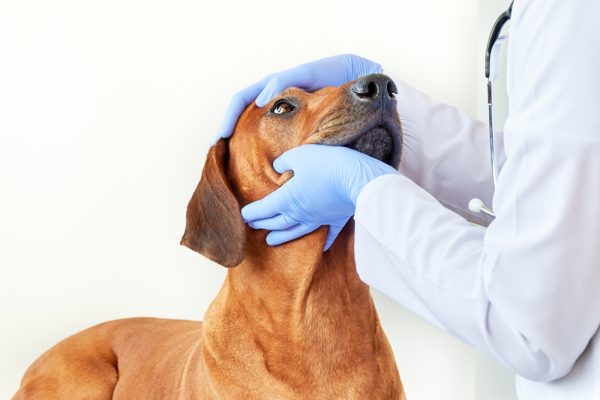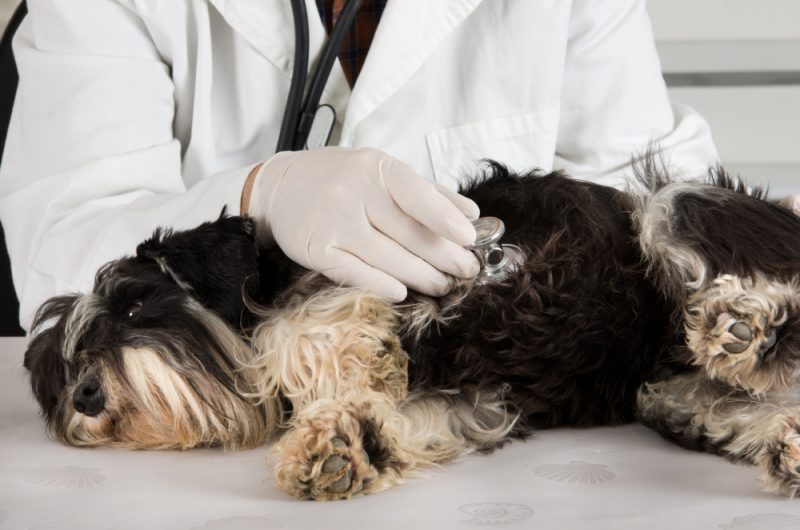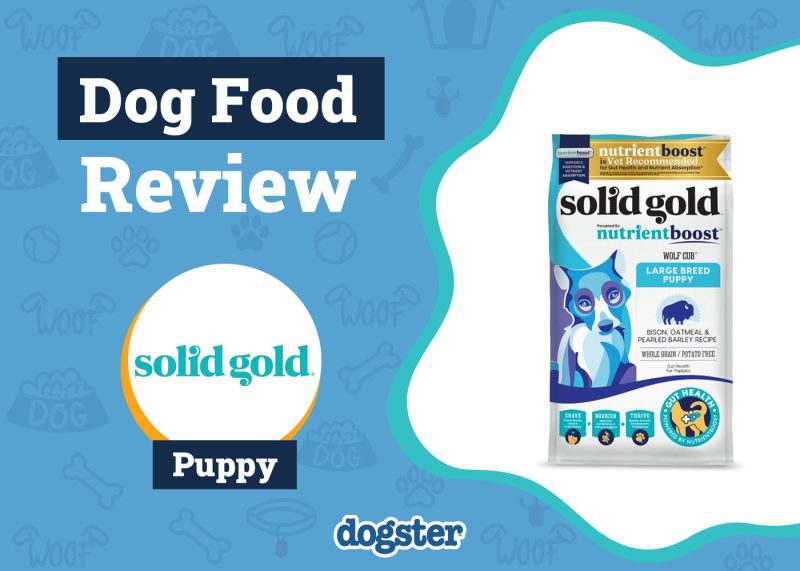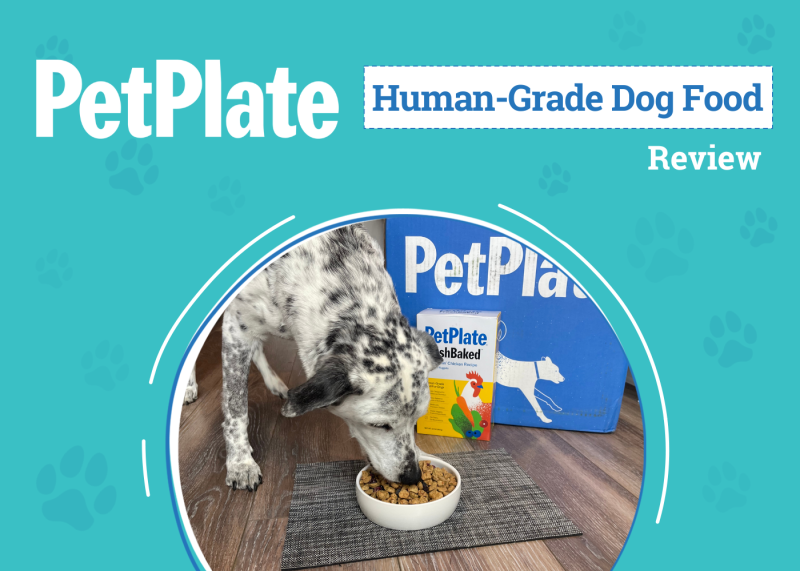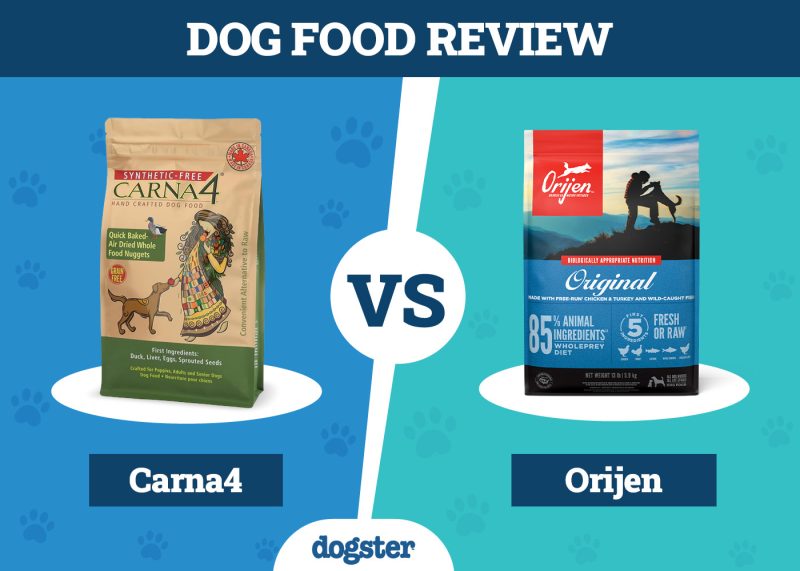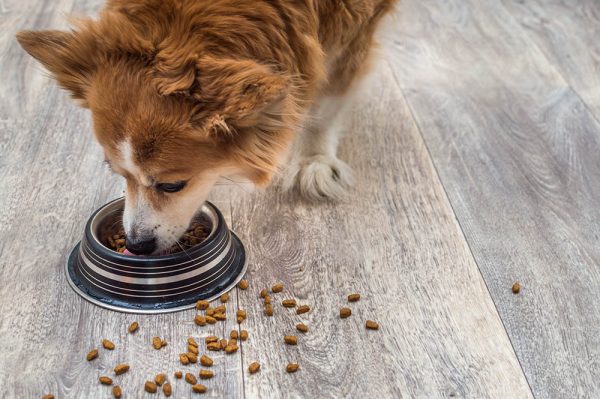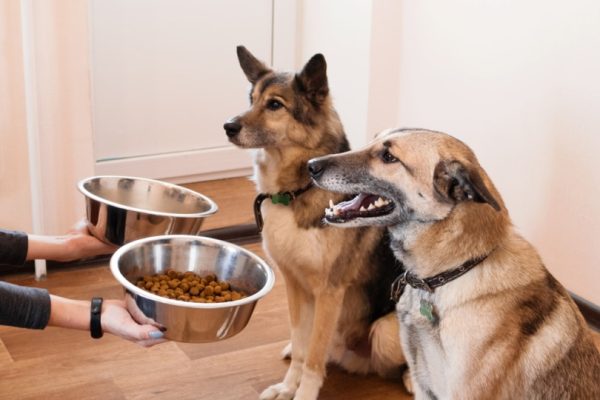Boston Terriers are quite the little charmers. Also referred to as the “American Gentleman” these little dogs have happy personalities and make exceptional little companions. They are friendly, funny, and love to snuggle—however, Bostons are known for their stinky little farts that can be silent but deadly! I personally own a Boston, so I can relate! Since I’m an owner myself, I often wonder why Boston Terriers fart so much.
In this post, we’ll explore the six likely reasons why Boston Terriers fart so much, along with tips on what to feed your Boston to keep the stinky farts to a minimum.

The 6 Reasons a Boston Terrier Is Farting So Much
1. Diet
A good diet is essential in keeping your canine companion healthy. Regarding Boston Terriers, another factor to consider with their diet is how gassy the food will make them and if it’s suitable for optimal health. The diet should be complete and balanced and provide all essential nutrients for your American Gentleman.
When changing your Boston’s food, ensure you make the transition slowly to avoid gastrointestinal upset—avoiding this crucial step in dietary changes can cause discomfort for your Boston and cause, you guessed it, stinky farts. It’s also wise to consult your veterinarian before changing the food to ensure it’s even needed in the first place. Keep in mind that your Boston will probably have some gas during the transition, but if it persists, consult your veterinarian.
2. Avoid Table Scraps
We know it’s tempting to share your human food with your Boston, but whatever food you give as a little treat can also be the culprit for stinky gas. A dog’s digestive system is not meant for human food, and it’s also not healthy for them due to excessive sugar, carbs, and fat. Some table scraps can cause vomiting, diarrhea, and even nausea. Spicy foods and anything with dairy should definitely be avoided, as dogs cannot handle most spices, and many dogs are lactose intolerant.
3. Brachycephalic Breeds
Boston Terriers are classified as a brachycephalic dog breed, meaning these dogs have shortened noses that prevent good airflow. Typically, brachycephalic dog breeds have stinky gas due to an increased breathing effort, especially when eating. The ingested air ends up in the digestive tract and stomach, and that air has to come out at some point, hence, stinky flatulence.
4. Food Allergies
Food allergies can cause dogs real discomfort, and sometimes, figuring out exactly what ingredient in your dog’s normal diet is causing the issue can be frustrating. Most dogs are allergic to animal protein such as beef, dairy, or chicken. Food allergies can cause gastrointestinal signs such as vomiting, diarrhea, and flatulence but also itchy skin, paws, and ears.
Realistically, the best course of action is to consult your veterinarian before switching to a different food because your vet can put your Boston on a food elimination trial, which is the only way to determine the cause.

5. Eating Too Fast
If your Boston is anything like mine, the dog food is gone in no time once you set the food bowl down. Eating too fast results in an overabundance of air inhaled and ingested, which can cause excessive tooting. The air expands in their little tummies, and the only way out is from their behinds.
Try feeding your Boston smaller meals throughout the day to help with fast eating instead of one big meal once a day. You can also try feeding through a puzzle toy or using a slow feeder in an effort to slow down how fast your Boston eats. If these methods do not stop fast eating, it’s wise to consult your veterinarian to rule out a medical issue, which we’ll discuss next.
6. Medical Issues
Last but not least, a medical issue could be the problem that’s causing excessive gas. Underlying medical issues can make your dog miserable and be hazardous to your Boston’s health. It’s important to have your Boston checked if you suspect some form of a medical problem.
We’ve already mentioned food allergies but other medical issues that can cause excessive, stinky gas include:
- Inflammatory bowel disease (IBD)
- Irritable bowel syndrome (IBS)
- Exocrine Pancreatic Insufficiency
- Gastrointestinal disease
- Parasites
- Cancer
Generally, if a medical issue is the reason for your Boston’s excessive toots, vomiting, diarrhea, lethargy, loss of appetite, or other issues usually accompany the problem. If you notice any signs mentioned above, make an appointment with your veterinarian as soon as possible.
If you’re concerned about your dog’s health we suggest you speak to a vet.
If you need to speak with a vet but can't get to one, head over to PangoVet. It's our online service where you can talk to a vet online and get the advice you need for your dog — all at an affordable price!

Tips for a Healthy Diet and Avoiding Excessive Gas
Thankfully, you can take specific measures to cut down on the stinky gas—however, gas is a natural part of life and your Boston will always toot, but that doesn’t mean it has to be excessive and unpleasant. Let’s take a look at ways to diminish the problem.
- Feed smaller portions, typically in the morning and evening instead of one big meal.
- Try to slow down how fast your Boston eats by using a puzzle toy or slow feeder to feed from.
- Feed high-quality, nutritionally balanced dog food.
- Exercise your Boston with the appropriate amount of exercise daily (around 60 minutes per day).
- Rule out medical issues.
- Consult your veterinarian about changing food, particularly the protein source.

Conclusion
Boston Terriers are known for their sweet, fun-loving personalities—they are also known for stinky farts. A few factors can be the reason for your Boston’s excessive gas, or it could be a medical issue. Ruling out a medical issue is the first and best course of action, and if that is ruled out, it could be diet related, swallowing excessive air from eating too fast, or other issues.
One thing’s for sure, where there’s a will, there’s a way to cut down on Boston Terrier flatulence, and your veterinarian can help you achieve it.
See Also:
Featured Image By: Zakharova_Elena, Shutterstock








